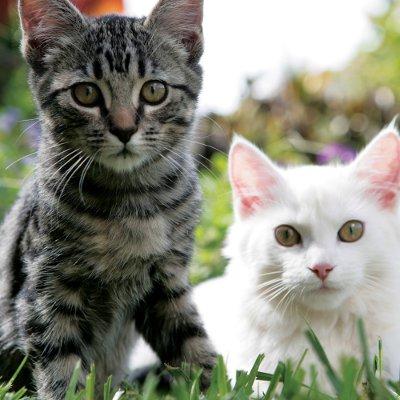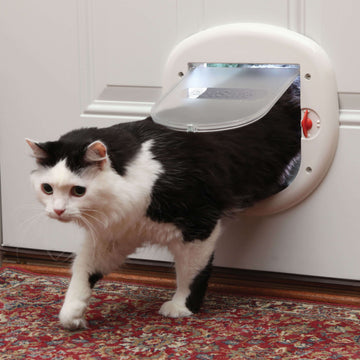 "To some blind souls all cats are much alike. To a cat lover every cat from the beginning of time has been utterly and amazingly unique." - Jenny de Vries
"To some blind souls all cats are much alike. To a cat lover every cat from the beginning of time has been utterly and amazingly unique." - Jenny de Vries
Any cat owner will tell you that every cat is different. So why it that some people think cats are one-size-fits-all? Cats have their own personalities and quirks just as people do. So it stands to reason that the chemistry between every cat and its owner is different too. The relationship between a cat and its guardian is the result of their personalities, mutual behavioral patterns and lifestyle types. However, many of cats behaviors are derived directly from their genetic ancestors. Certain breeds have particular characteristics that demand a particular lifestyle or, at the very least, understanding on the part of the guardian.
If you are considering bringing a cat into your home, you should consider not only your lifestyle and personality but also the personality and inherited make-up of a particular breed of cat. Here are some things to consider when looking to purchase a particular breed:
- Cat Chatter: Every owner expects their cat to meow and “talk” a bit. But some breeds, such as the Korat, the Burmese, and the Siamese, are known for their vocal abilities. These breeds are famous for having long and loud conversations with their favorite humans. If you live in an apartment and have thin walls with persnickety neighbors, you might want to consider adopting quieter breeds such as the American Curl, Somali, or the Scottish Fold.
- Activity Level: Some cats with high energy levels are able to entertain themselves and those around them for hours on end. Energetic breeds such as the Devon Rex, Sphynx, Balinese, and British Angora are noted for their curiosity and mischief. Consider these breeds for persons who find themselves indoors much of the time, the elderly or the physically handicapped as they provide a great source of companionship and entertainment.
- Grooming Needs: A long hair kitten is just about the most adorable creature you have ever seen. Adopt a long-hair breed only if you think that you can devote considerable amount of time and/or expense on its grooming. Lack of proper grooming may cause your cat’s coat to lose its luster and become tangled. Shaving is a last resort to address this issue and it can be quite traumatic. Some cats may need to be sedated. If time or money for regular grooming is a constraint, avoid breeds such as the Norwegian Forest Cat, Maine Coon Cat and Ragdoll.
- Sociability: Attention-seeking, affectionate, cuddly cats are normally good with children. If you have kids at home, consider friendlier cat breeds such as Ragdoll, Maine Coon, Snowshoe, Tonkinese, Abyssinian, and the Himalayan Persian. Breeds that are known to be a bit more aloof, especially with strangers, are the Russian Short Hair, Norwegian Forest Cat and the Nebelung. If you are looking to socialize a cat with a dog or puppy, it's best to consider an American Shorthair, a Japanese Bobtail or a Tonkinese. These friendly, out-going kitties are known for their dog-like traits and are known to socialize well, when properly introduced, with friendly canines.
- Susceptibility to Diseases: Some domestic cat breeds, through over-breeding, are more prone to diseases. It becomes an expensive affair if a cat needs to be treated for diseases such as joint inflammation, cancers, Feline Immunodeficiency Virus, Feline Leukaemia Virus (FLV), feline panleukopenia, (FIV) or Feline Infectious Peritonitis (FIP). Breeds that have been singled out by veterinary organizations and feline advocacy groups include, but are not limited to, Persians, Munchkin cats and Scottish Folds. These cats are bred for emphasis on certain physical characteristics and as a result, a thinning gene-pool often leads to serious illness.
- Allergies: Allergens are found in a cat’s saliva and also in its sebaceous glands found in its skin.When it grooms itself, it spreads the allergens to the surrounding environment. The concept of a true hypoallergenic cat does not exist, but Rex cats have been found to be associated with a 10 percent less risk of causing allergies compared to other breeds.
- TLC: Some cat breeds require more TLC than others. Breeds such as the Devon Rex or Korat are very affectionate and require lots of love from their human. These two breeds can even exhibit signs of depression if left alone for long periods of time. Some undemanding breeds include the Russian Blue, Exotic Shorthair, Manx, Munchkin, Burman and the Scottish Fold.
- Indoor/Outdoor: Small cats are ideal for smaller areas such as apartments or cottage homes. For example, the Singapura breed grows up to a height of 9 inches at maturity and they are recognized as a great indoor pet for their affectionate and friendly nature. But if you are planning to allow your small cat outdoors, you could be setting them up to be victimized by fox, coyotes and prey birds. Other breeds, such as the Sphynx or Bambino, have little or no hair. These cats can never be permitted to be out in strong sun or cold conditions and are best protected indoors. Many breeders will not sell you a cat if you intend to let it outdoors. Most veterinarians will also recommend that you do not let you cat outdoors unless you have them on a leash.
With that said, if you are insistent on having an indoor/outdoor cat it might be best to adopt a rescue that already had this lifestyle. A cat that is already acclimated to the outdoors and its associated dangers might have a better chance of survival. Make sure to factor in the expense of additional vaccines and the occasional trip to the vet due to encounters with other cats, dogs or wildlife. Lastly, don’t forget to take into account that your indoor/outdoor kitty will bring you “presents” in the form of dead birds and vermin.
This guide may be helpful if you are buying from a breeder. But what if you are adopting a cat from an animal shelter? Things may seem to be a little confusing because you don’t know the cat’s ancestry. While there are 'cat ancestory' tests that you can pay for, the best way to learn about the cat’s temperament is to seek information from the rescue shelter staff. This way you can judge the suitability of the cat for your family. While breeds may influence your choice, personality and lifestyle are going to be better indicators of your long term happiness. Cats in the rescue shelter are waiting to be a part of a happy family!
Still looking for more information? Try Animal Planet's lifestyle quiz to determine the best cat for your home.




